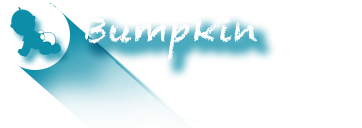“This baby feeds from his mother’s milk,” I answered in my newly-acquired language. Stepping out with a newborn in Indochina, I had expected the typical questions to be “Boy or girl?” or “How old?” But what I heard was very different – “No Breastfeeding!”
Local friends, waitresses, fellow passengers on the city bus, taxi drivers, the neighbor’s housekeeper — everyone in this foreign land wanted to know if my baby was breastfed. I answered with quiet confidence: “My baby drinks milk from his mother.”
 Living in a developing country, I assumed breastfeeding in Asia happened for all babies. After all, breastfeeding is very economical and many countries in Asia offer some of the most generous maternity leave laws in the world. It took some time to synthesize the complexity of their perspectives on breastfeeding in Asia, however. Not everyone thinks breastfeeding is all that great, so it took fortitude and commitment to fight through the shame and to continue nursing my child during my stay in Southeast Asia.
Living in a developing country, I assumed breastfeeding in Asia happened for all babies. After all, breastfeeding is very economical and many countries in Asia offer some of the most generous maternity leave laws in the world. It took some time to synthesize the complexity of their perspectives on breastfeeding in Asia, however. Not everyone thinks breastfeeding is all that great, so it took fortitude and commitment to fight through the shame and to continue nursing my child during my stay in Southeast Asia.
From young mothers I often heard, “I couldn’t feed my baby. I didn’t have milk.” I wanted to take these moms in my arms and say, “I’m so sorry. They lied to you. You have milk for your baby if you’d only use it!” These moms were shortchanged the opportunity to breastfeed because of ignorance. Somewhere deep in the psyche of their mothers and the neonatal nurses in the hospital was the belief that formula was a better source of nutrition than breast milk. Perhaps the third world has the same problem the United States had in the 1950s – 1970s. They are playing catchup.
Despite the U.S. Department of Health and Human Services pronouncements on the importance of breastfeeding, many Americans also don’t believe breastfeeding is all that important.
Ignorance about a scientific problem called nipple confusion is rampant. This problem happens when newborns and mothers find bottles easier during the first days following birth. But the long term consequences are significant as children and mothers never learn to properly breastfeed.
It is difficult when doctors and nurses tell parents to only give babies formula, because their patients believe them. Mothers are often told something similar to “Your baby was hungry, and you don’t have milk.” Aware of this practice, I taped self-published notices in the local language to my son’s crib that read: “This baby only breastfeeds.”
In parts of Asia many middle-aged women have a perception that breastfeeding is dirty and something animals do. Only the unclean, uncivilized, uneducated would breastfeed. So, I quietly took my place, stereotyped as the unclean, uncivilized, and uneducated by breastfeeding in Asia – but I held firm to my belief that breastfeeding was right for my child.
Southeast Asian grandmothers, with pride sparkling in their eyes, would say to me, “We have money to buy milk powder (formula) for our grandchild.” These grandmas had raised their children during a famine. Some days, they had only the runoff water from cooking rice to give their babies. With increased wealth and food, these grandmas scraped together what money they had to get only the best for their grandchildren. The look on strangers’ faces communicated disapproval for my not buying the best for my baby.
Other third-world countries experience the same perils when parents arrive in urban areas where “science” influences their decisions to breastfeed. The best way to feed, these mothers will often conclude, is the formula powder that came in shiny cans from industrialized nations.
“Many of the women from the countryside usually do breastfeed, even up to one year, even if the lactating mother is malnourished. But when these women come to Mogadishu, they see the women here bottle-feeding with formula, and believe it is better. Then they start changing their ways.”
– Counselor in Infant and Young Child Feeding (IYCF) practices, Shamso Abdullahi
From an impoverished, underprivileged, rural woman on the city bus, I heard condemnation. One moment stands out in my memory about breastfeeding in Asia, when I met a fellow traveler who was going to peddle a few handmade trinkets in the city. She asked, “Does your baby breastfeed?” although by this time, my one-year-old son had weaned. I was quietly relieved to be able finally to give the acceptable answer. “My son drinks powdered milk.” My relief was vain and fleeting when she looked at me with pride in her accomplishments and in pity for my failure. “My baby is two years old, and she will still drink milk from her mother.”
Turns out the tides may be changing in favor of breastfeeding, after all. Event this rural woman in a third-world country new the benefits of breastfeeding beyond one year.


